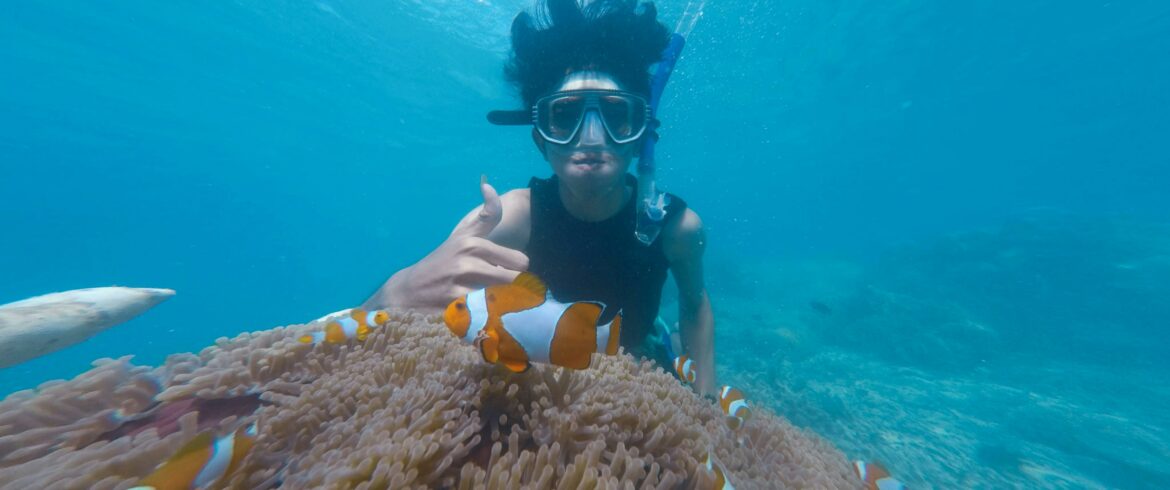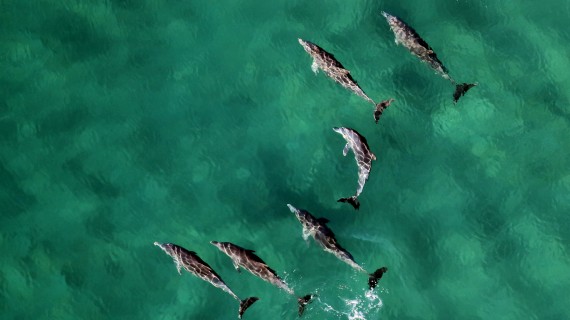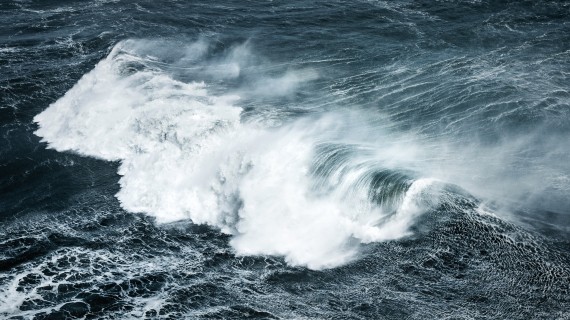Many holiday activities can negatively impact the wildlife and ecosystems you visit but snorkeling doesn’t have to be one of them. Sustainable snorkeling practices are essential to preserving marine life and ensuring that your adventures don’t harm the ocean. Follow these ethical guidelines for sustainable snorkeling on holiday to enjoy snorkeling responsibly while protecting the environment and supporting eco-friendly tourism.
When planning a holiday, it’s crucial to consider how your activities affect the destination’s natural habitats. Snorkeling, when done sustainably, allows you to explore underwater wonders without leaving a harmful footprint. Sustainable snorkeling minimizes ecological disruption, thereby maintaining the health of marine ecosystems for future generations. By adopting conscientious practices, such as using a snorkel mask that enhances visibility without disturbing marine life, you contribute to the preservation of vibrant coral reefs and diverse marine life.
Respect Marine Life
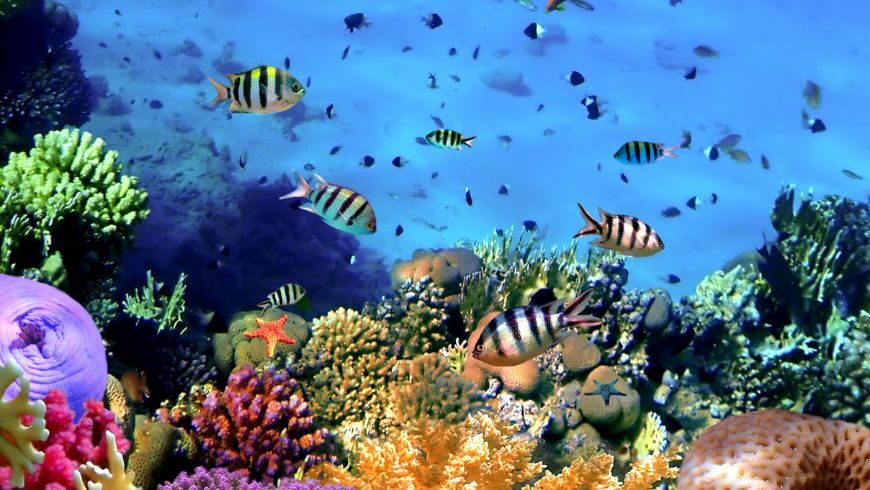
Respecting marine life is a fundamental aspect of sustainable snorkeling. Avoid touching or disturbing any sea creatures you encounter during your exploration. Many marine animals are delicate and even a slight touch can cause stress or injury. Maintaining a safe distance from coral reefs and marine animals not only protects them but also ensures your safety from potentially hazardous interactions.
Coral reefs are particularly sensitive ecosystems that require careful attention. These vibrant underwater gardens support an immense variety of life forms, yet they are fragile and susceptible to damage. By keeping a respectful distance, you help preserve their beauty and biodiversity. The use of a well-fitting snorkel mask can enhance your experience by providing clear visibility without needing to get too close.
Observing marine life from afar allows you to witness natural behaviors without interference. This approach fosters a more authentic and enriching experience as you gain insight into the intricate relationships within aquatic communities. Remember, the ocean is home to these creatures and your presence should be as unobtrusive as possible.
Reduce Your Environmental Impact

Responsible waste management is crucial when snorkeling, as littering can have devastating effects on marine environments. Always ensure that you bring back all waste, including plastic bottles and food wrappers, to avoid polluting the ocean. Even small pieces of litter can pose serious threats to wildlife if ingested or become entangled.
The use of reef-safe sunscreen is another important consideration for eco-friendly snorkeling. Traditional sunscreens often contain chemicals harmful to coral reefs and marine organisms. Opting for products labeled as “reef-safe” helps reduce chemical pollution in these sensitive areas. This small behavior change contributes significantly to preserving underwater habitats.
By adopting sustainable waste management practices, you set a positive example for others and help maintain clean and healthy oceans. Participation in beach clean-ups or similar conservation activities further amplifies your impact by directly addressing pollution issues at their source.
Support Conservation Efforts
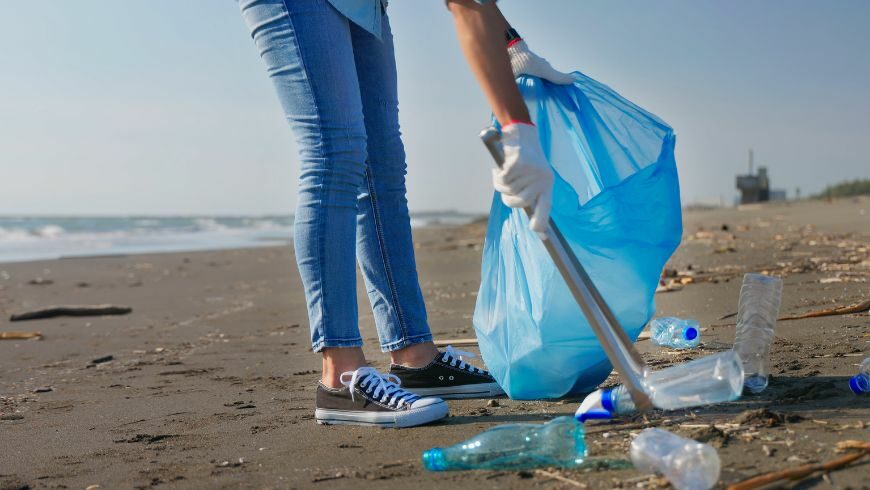
An effective way to practice sustainable snorkeling is by supporting conservation efforts within the areas you visit. Choosing tours and operators that contribute part of their proceeds towards marine conservation projects ensures that your tourism dollars aid preservation initiatives. These contributions often fund research, habitat restoration and educational programs aimed at protecting oceanic ecosystems.
If available, consider engaging in volunteer opportunities such as beach clean-ups or participating in local conservation activities. These hands-on experiences not only benefit the environment but also provide valuable insights into regional ecological challenges and solutions.
Your involvement in these efforts demonstrates a commitment to environmental stewardship while enhancing your understanding of marine conservation needs. It fosters a deeper connection with the natural world and encourages others to adopt similar practices.
Choose Eco-Friendly Snorkeling Experiences
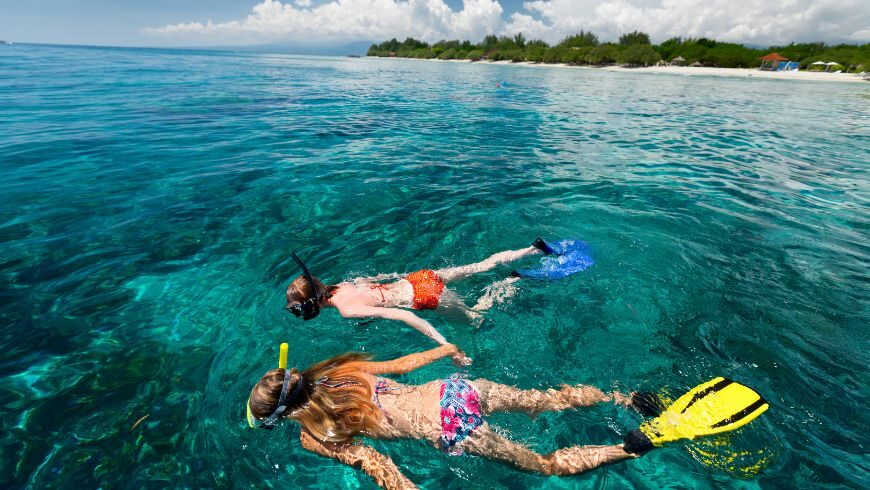
The best way to enjoy snorkeling sustainably is by selecting eco-certified tours and destinations that prioritize conservation. Many marine reserves offer guided snorkeling experiences led by trained professionals who educate visitors about the importance of protecting underwater ecosystems.
If you’re planning a snorkeling holiday, consider staying at eco-friendly accommodations on Ecobnb. Many of these lodgings are located near marine protected areas, offering responsible travel experiences that align with sustainable tourism values.
Getting Started with Snorkeling
If you’re new to snorkeling, selecting the right gear is crucial for a safe and enjoyable experience. Prioritize finding a comfortable snorkel mask that provides a snug fit without leaking water – this ensures clear visibility underwater without frequent adjustments.
Proper training or guidance from experienced snorkelers can greatly enhance your first-time experience by teaching essential techniques such as breathing control and finning efficiently through water currents.
Avoiding common beginner mistakes enhances safety while maximizing enjoyment throughout your underwater journey – making memories worth cherishing long after returning home. So, now that you know all there is to know about snorkeling, are you going to hop into the water soon?
